Exploring “what are the 4 duties of a moderator” reveals the critical roles these individuals play in managing online communities. As the linchpins of digital forums, moderators ensure that discussions remain respectful and adhere to established guidelines. This article delves into their essential responsibilities, showcasing how they maintain order and foster positive interactions within online spaces.
what moderator mean?
A moderator is a person who oversees and regulates the interactions within a community or platform, ensuring that the rules are followed, discussions remain on topic, and all participants engage with courtesy and respect. Moderators can be found in various industries and contexts, including social media, community forums, and events.
The primary role of a moderator is to facilitate, review, and guide discussions or debates and related interactions to ensure all shared content is appropriate and follows community guidelines. They provide discussion topics, encourage participants to share, remove unrelated or inappropriate content, answer questions, define group boundaries and rules, and update the platform.
what does social media moderator do
A social media moderator plays a crucial role in managing and maintaining the health and positivity of online communities on various social media platforms. Their responsibilities include:
- Content Moderation: Review user-generated content on social media platforms to ensure it aligns with community guidelines. Identify and moderate content that violates policies related to hate speech, harassment, violence, and other prohibited behaviors.
- Policy Enforcement: Ensure that all users adhere to the established community guidelines and policies. Take appropriate actions, such as issuing warnings, temporary suspensions, or permanent bans, against users who violate guidelines.
- Feedback and Issue Resolution: Investigate and resolve user-reported content issues, taking appropriate actions based on established protocols. Collaborate with cross-functional teams to address complex or escalated cases.
- Stay Informed: Stay updated on industry trends, emerging issues, and changes in social media policies. Provide insights and recommendations for policy improvements based on evolving content trends.
- Reporting and Documentation: Maintain accurate records of content moderation activities and produce regular reports on key metrics. Document and escalate issues that require attention beyond the moderation team’s scope.
- User Education: Contribute to the creation of educational materials to help users understand community guidelines and expectations.
read more about: what is a content creation agency
what are the 4 duties of a moderator: what does a moderator do?
forum moderator duties OR The four duties of a moderator are:
- Monitoring and Enforcing Community Guidelines: Moderators ensure discussions remain civil, constructive, and relevant by enforcing community rules and guidelines. They have the authority to edit, move, or delete content that does not align with established guidelines.
- Ensuring Fairness and Decorum in Discussions: Moderators maintain order during emotional exchanges, guide discussions back to the main theme if they stray, and ensure all participants engage with courtesy and respect. They play a crucial role in upholding the integrity of discussions and removing any unlawful or inappropriate content.
- Responsibilities of a Moderator: Moderators manage user-generated content, engage with the community, update platforms with the latest developments, and uphold the integrity of discussions. They also have the authority to approve or remove information based on relevance and appropriateness.
- FAQ: Moderators may have additional responsibilities like organizing events, managing user reports, and collaborating with platform administrators to develop or revise community guidelines.
Monitoring and enforcing community guidelines are critical responsibilities of a moderator to ensure that an online environment is safe, respectful, and conducive to productive discussions. Here’s how moderators typically manage these tasks:
Monitoring Community Interactions
Moderators keep a constant watch over all communications within the community, including posts, comments, and private messages. They use both automated tools, such as software that flags inappropriate language or potential spam, and manual oversight to review content that may not obviously violate guidelines but could still be problematic. This dual approach helps ensure that nothing detrimental slips through the cracks.
Enforcing Community Guidelines
Once content that violates the guidelines is identified, moderators take appropriate actions based on the severity and nature of the breach. Actions may include:
- Removing or Editing Content: Posts that contain offensive material, personal attacks, or spam are either edited to remove specific content or deleted entirely.
- Issuing Warnings: Members who violate guidelines receive warnings. These can be private or public, depending on the community’s policies and the incident’s severity.
- Temporarily or Permanently Banning Users: For repeated offenses or particularly egregious violations, moderators may ban users either temporarily or permanently, preventing them from participating in the community.
- Educating Members: Besides punitive measures, moderators often take the opportunity to educate members on why their behavior was inappropriate to prevent future violations and to foster a more informed community.
Updating Guidelines
Moderators are also involved in reviewing and updating community guidelines as needed. They take into account new trends, technologies, and member feedback to ensure rules remain relevant and effective. This task may involve discussions with other moderators, community managers, or legal advisors to align the guidelines with broader organizational goals or legal requirements.
Overall, effective monitoring and enforcement of community guidelines are foundational to maintaining a healthy online community where all members feel safe and valued. This role requires a balanced approach of vigilance, fairness, and sometimes, diplomacy, to manage community dynamics successfully.
should you hire a agency for moderator?
Whether or not to hire a agency for moderators depends on various factors, such as the size of your community, the volume of user-generated content, and the resources available to you.
If you have a large community or a high volume of user-generated content, hiring an agency with expertise in content moderation can be beneficial. Agencies like Ergasti digital agency offer trained professionals with crafted skills in content moderation, which can help ensure that your web platforms are protected from violence, hate speech, substance abuse, fake news, scams, and any danger to your content.
FAQ
Q: What does a moderator do?
A: A moderator oversees and manages online discussions to ensure they are respectful, informative, and within community guidelines. They monitor content, mediate disputes, and engage with community members to foster a positive environment.
Q: Why are community guidelines important for a moderator?
A: Community guidelines set the standards of behavior and interaction within the forum. They help moderators ensure all discussions are constructive and respectful, providing a clear basis for moderation actions like content removal or user bans.
Q: How do moderators handle conflicts between community members?
A: Moderators act as neutral parties to resolve conflicts by mediating discussions, providing clarifications on misunderstandings, and enforcing community rules. They strive to handle disputes diplomatically to maintain a healthy community dynamic.
Q: Can a moderator edit or delete user posts?
A: Yes, moderators can edit or delete posts that violate community guidelines or are otherwise harmful or irrelevant to the discussion. This helps maintain the quality and integrity of the community content.
Q: How can I become a moderator?
A: Becoming a moderator often requires a deep understanding of the community, excellent communication skills, and a fair, impartial approach to conflict resolution. Many moderators start as active community members and gradually take on more responsibilities.
Q: What are the challenges faced by moderators?
A: Moderators often deal with difficult situations, including managing heated arguments, addressing sensitive issues, and handling disruptive users. They must balance enforcing rules with maintaining a welcoming atmosphere.
Q: Are moderators always part of the organization that runs the online platform?
A: Not necessarily. While some moderators are employees of the organization, many communities rely on volunteer moderators who are regular members passionate about maintaining a positive community environment.
Q: How can community members support moderators?
A: Community members can support moderators by adhering to the guidelines, reporting violations, participating positively, and respecting the moderator’s decisions. Constructive feedback on moderation decisions can also help improve community management practices.
Takeaways
Effective moderation is essential for the health and success of any online community. At Ergasti, we recognize the critical role that moderators play in ensuring that discussions are productive, inclusive, and aligned with the community’s goals. Understanding “what are the 4 duties of a moderator” is fundamental in enabling communities to thrive and grow in a structured and positive way. By implementing these key duties, moderators ensure that our communities not only function effectively but also foster environments where meaningful and constructive interactions can occur.

